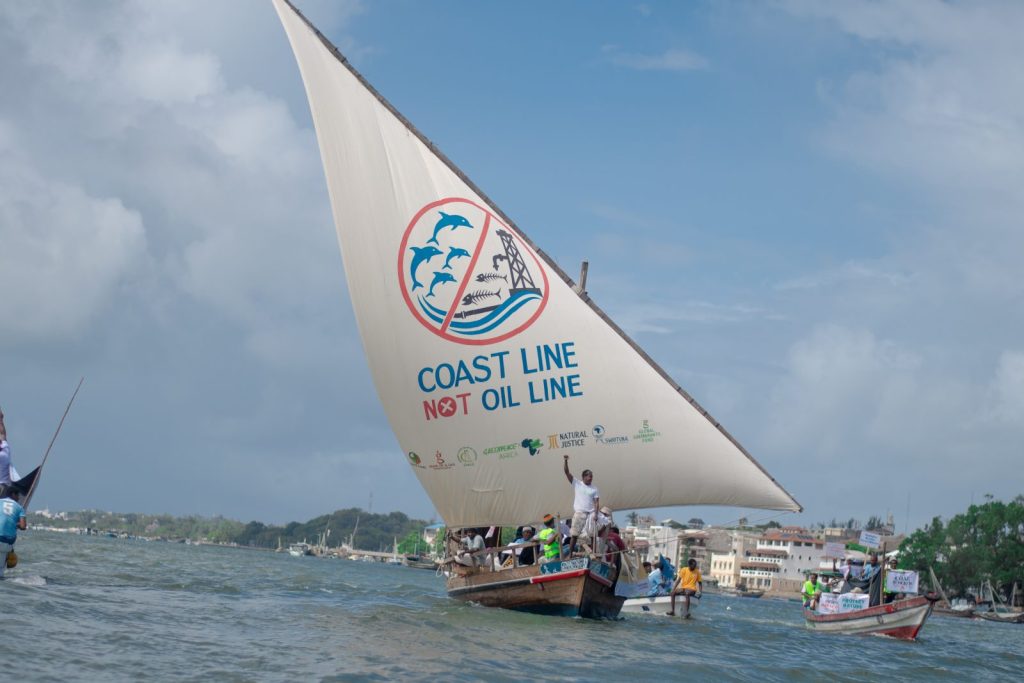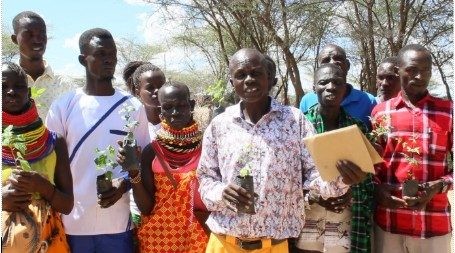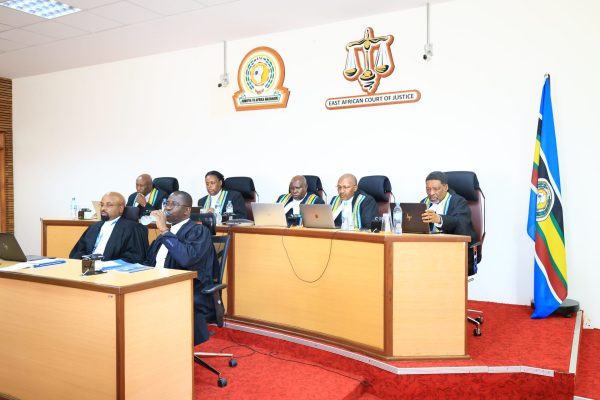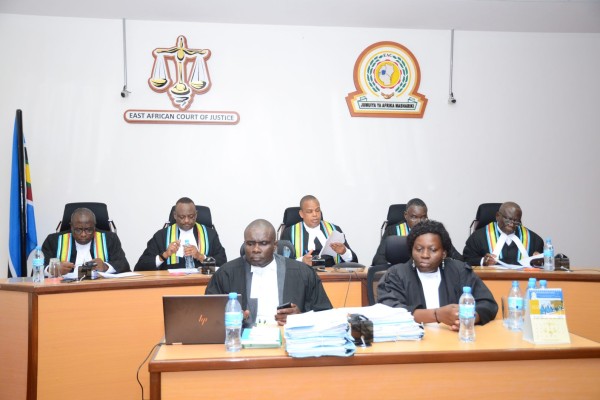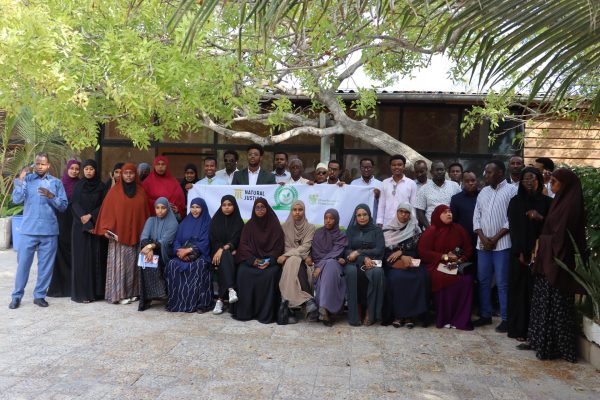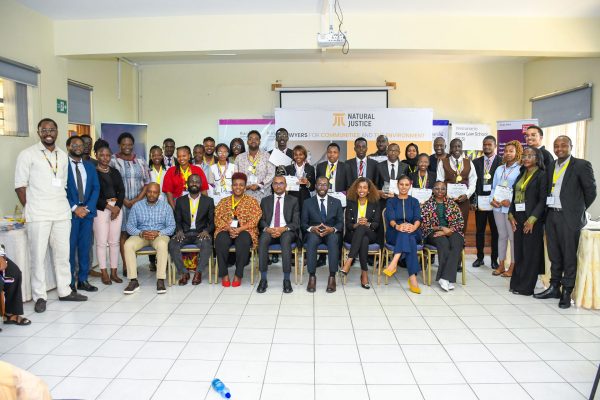PRESS RELEASE
For Immediate Release
World Environment Day – 5 June 2025
LAMU, KENYA – 5 June 2025 – As the world commemorates World Environment Day under the theme “Putting an End to Plastic Pollution,” coastal communities in Lamu are raising another urgent concern: the threat of fossil fuel expansion along Kenya’s delicate coastline.
Partner organisations—including Save Lamu, the Kenya Oil and Gas Working Group, Natural Justice, Greenpeace Africa, Oilwatch Africa, SWIOTUNA, and others—have united under the banner “Coastline Not Oilline” taking to the streets of Lamu in a peaceful march to highlight the environmental and social risks posed by new oil exploration plans in Lamu.
While the global community seeks solutions to plastic pollution and ecosystem degradation, the Government of Kenya has signalled its intent to open ten new oil exploration blocks, with eight of them falling within the Kenyan coastline. These proposed activities endanger marine biodiversity, heritage sites, and traditional livelihoods, undermining the spirit of World Environment Day and Kenya’s climate commitments. This move is especially concerning given that over 99% of plastic is made from chemicals derived from fossil fuels, meaning the fight against plastic pollution is inseparable from the fight against fossil fuel expansion.
While this may sound like a big step forward in energy development, there are serious concerns about how these big oil projects are planned, who they will affect, and whether Kenya is ready to manage the risks.
A Coastline Under Threat
Lamu, a UNESCO World Heritage Site, has long been at the frontline of heavy industrialisation—from the LAPSSET corridor, including the proposed Lamu Lokichar Crude Oil Pipeline (LLCOP) and port developments to the now-stalled coal plant. Communities here continue to face the impacts of large-scale infrastructure projects that risk damaging coral reefs, displacing families, and disrupting centuries-old fishing traditions.
“We’re asking for clean energy, not oil rigs. We want development that honours our land, our sea, and our rights,” said Somo M. Somo, Chairperson of Save Lamu. “These decisions are made without our consent, yet we are the ones left to deal with the consequences—spills, pollution, and loss of livelihoods and culture.”
“As the world commemorates World Environment Day, CANCO and KOGWG stand united with communities and guardians of Lamu, we emphasise on the protection of the sensitive Lamu ecosystem and UNESCO World Heritage Site. Lamu is a county under immense pressure from the proposed coal-fired power plant, the Lamu Lokichar Crude Oil Pipeline (LLCOP), and now areas demarcated for licensing. We stand firm with the community of Lamu in demanding that the Ministry of Energy and Petroleum reconsider those plans and move renewable energy projects forward. Plastics rely heavily on hydrocarbon resources and go against Kenya’s commitments to climate action.” Muturi Wa Kamau – Coordinator, Kenya Oil and Gas Working Group
“Natural Justice stands in solidarity with Lamu communities on this World Environment Day because the health of our environment is directly tied to justice. You cannot claim to end plastic pollution while expanding fossil fuel exploration—these struggles are interconnected. We must choose people, planet, and a just future over profit and pollution.” Elizabeth Kariuki – Hub Director, Natural Justice
“The people of Lamu are not just resisting oil, they are rising to protect their dignity, their heritage, and a future where progress respects the environment,” said Sherelee Odayar, Oil and Gas Campaigner at Greenpeace Africa. “Kenya stands at a pivotal moment to lead Africa’s just energy transition by embracing clean, community-driven solutions that uplift both people and planet. On this World Environment Day, we call on leaders to listen deeply to the science and the voices of coastal communities defending their future, culture, and invaluable natural heritage.”
The “Coastline Not Oilline” campaign, driven by local voices and supported by civil society organisations, calls for an immediate halt to new oil licensing in Lamu and across Kenya. It advocates for urgent investment in renewable energy, environmental protection, and development led by communities—not imposed upon them.
A call for a just and inclusive transition
Kenya stands at a crossroads. It can choose a future that upholds its commitments to 100% clean energy by 2030, honours its Constitution, and ensures that development leaves no one behind.
We call on the Government of Kenya to:
- Align national development plans with a strong legal framework that guarantees a clean and healthy environment.
- Provision of Information & Meaningful Public Participation in decisions affecting the population’s health and environment.
- Suspend all plans for the proposed new oil licensing, especially in ecologically sensitive and culturally significant areas like Lamu.
- Respect and uphold the principle of Free, Prior and Informed Consent (FPIC) for all affected communities;
- Support locally driven renewable energy solutions that create decent jobs while preserving ecosystems, and advance a just energy transition
As we reflect on this year’s World Environment Day, we remind our leaders: you cannot restore nature while opening it up to drilling. The future is clean, just, and community-led—and it begins with listening to those who call the coastline home. COASTLINE, NOT OIL LINE
Contact:
Salome Muiruri
Communications & Campaigns Officer – Natural Justice
muirurisalome@naturaljustice.org
Mohammed Okeli
Assistant Communication and Media Officer – Save Lamu

